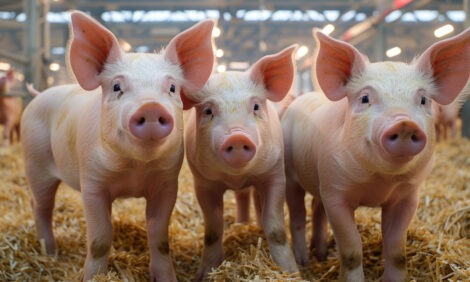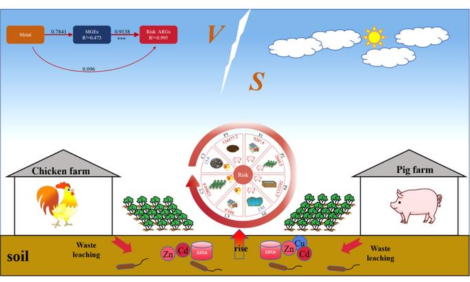



What to expect when you're expecting Brexit
The pig industry is one of many concerned about its future when March 2019 arrives and Brexit becomes official, but what has been achieved so far and what can we expect in 2019?Words Ed Barker, National Pig Association
‘Times change and we change with the times’ – Sir Humphrey - Yes, Minister.
The withdrawal
Looking back at 2018 is something of a challenge, not least in trying to work out what progress we seem to have made in Brexit terms. Instead of 2018 representing a rich collage, it is, in many respects, a kaleidoscope of grey. Around this time last year, I wrote a number of columns and pieces outlining the possible effects of a no deal, the type of deadlock that we found ourselves in, and the unmovable forces relating to the Brexit picture. As I write this, it is quite startling as to how less clear the picture is for UK pig producers – in many cases we are almost exactly in the same place.
As the year has worn on we have seen the UK and EU come to a formative agreement to deal with the ‘withdrawal’ aspect alone – that is the transitional period between April 2019 and December 2020. This would mean the UK would be treated as a member state in that time in all but name, but without any influence over proceedings. During the summer we all looked on in bemusement as a UK Cabinet plan was put in place at Chequers, only for it to trigger a wave of ministerial resignations.
Eventually, the EU and UK came to an agreement on the Withdrawal Agreement alone, however this has now been effectively vetoed by a number of MPs, leaving the UK at an impasse. Preparations by the Government for a ‘no-deal’ have been quietly escalating as the year has drawn on – a swathe of ‘technical notices’, explaining how various processes will work in the event of a no-deal, have been released and, behind the scenes, significant amount of time, work and resource are being put into trying to manage the effects of a no-deal as best as the Government can.
The pig sector
The backstop
What then, does this all mean for the UK pig sector? Understandably this has been a frequent question that has been asked of the National Pig Association for some time, and as ever it is difficult to give a clear guide, when our own Government recognises we are headed into totally unchartered waters. We can however look at the different outcomes that would arise from a deal and no-deal scenarios. It is important to look at each of them in their own right as the outcomes are genuinely that binary. If Parliament can agree to a position on the Withdrawal Agreement, then the UK will continue to operate on current terms with the EU; trade, regulations and mutual standards will continue, with the caveat that the UK can start to negotiate its own trade deals with 3rd countries. This would continue until December 2020 when a ‘final deal’ is expected to be agreed. This is good for pig producers in both the UK and Europe, as it provides the type of continuity that we need to ensure sensible trade flows of pork to and from the UK, as well as inputs and other imported commodities vital to managing pig businesses.
Reading the above, we might question what the issue is. As has been predicted by many since the start, it all comes down to Ireland and more specifically, the Irish/UK border.
The problem is: what happens if, after the transition period is reached, there is still no deal between the UK and EU? The draft Withdrawal Agreement states that a backstop must be in place, essentially to avoid the UK reverting to a no deal scenario whilst there is no border between Northern Ireland and the Republic of Ireland – given that any 3rd country to the EU cannot have an open and free border. Brexit-supporting MPs and Unionists are unhappy that this does not give the UK the right to unilaterally pull out of the backstop, as well as its provision for an ‘all-Ireland’ solution to customs and on product standards (to avoid a hard border). The EU says it will not change these caveats, and has left the issues firmly with Westminster
The irony of the above is that by opposing the backstop arrangements of a temporary, transitional agreement designed to stop a no-deal in January 2021, we could in fact be heading to a no-deal in March 2019.
Trade and tariffs
For pig producers and all allied businesses, this provides sobering consequences. A no deal could pose profound challenges to all parts of the supply chain, as the UK would effectively be a 3rd country to the EU; no different to Nicaragua or Nigeria. This would mean a reversion away from free trade to becoming a WTO member alone – bringing with it tariffs and duties applied to imports and exports of products, as well as stringent checks on all exports of goods to the EU that any other non-EU country has to undertake. The ability to move fresh produce across UK and EU borders could be compromised in the event of a no-deal, leading to lengthy inspections at border points, and administrative-heavy processes to export from the UK to EU. Given that around 60% of UK pork exports still go to the EU - either from Northern Ireland to Republic of Ireland, or as cull sow carcasses to Germany – losing export access because of high tariff rates would severely affect productivity and producer returns. Although much of the concern relates to pork itself, we should also note that a no-deal could also significantly disrupt the trade in genetics or live animals that go to, or via the EU.
Many producers have understandably questioned why the UK should tolerate tariffs on exports to the EU without applying them the other way. This is an understandable sentiment given the reliance of the EU on the UK market; sadly the realities of the situation are very different. In such a scenario pig prices could escalate extremely sharply, which would appear a good thing for producers. However, the Government is acutely aware of the risks of food price increases, and has been pretty clear (without saying explicitly so) that it will want to maintain continuity on imports and keep prices stable. In its view, Brexit can hardly be shown as a success if food prices escalate for consumers, or shortages are seen in supermarket aisles. What this then means is that we would likely see tariffs and trade barriers on exports, but continued levels of imported goods coming in under the same procedures, tariff free. If that doesn’t compound the concerns, this approach would, under WTO rules, have to be offered to all countries and not just EU member states. Preferential access deals can only be done under the guise of a Free Trade Agreement and in the absence of a final deal with the EU, the UK could begin to import volume of pork from non-EU countries, produced to different, lower, standards.
There are of course many other variables in all of this. The market is very good at adapting to the realities it finds itself in very quickly, and given that many of the larger integrated pig companies in the UK own their own sows, novel solutions could be found, though this could be little more than blind optimism. Another key factor is that of currency. As we saw in the aftermath of the Brexit vote, sterling dived against the Euro, rendering imports more expensive against British pork. Many economists have forecasted that if a no deal is likely, sterling is likely to drop further against the Euro, causing inevitable knock on effects to imported pork and possibly balancing the effects of the loss of EU export access to UK producers.
Poised for a positive start
This is but a snapshot of the issues that the UK pig sector faces in a critical juncture for British politics. Unlike other farming sectors, the pig sector is unsubsidised, and is arguably better prepared to deal with the likely volatility and shocks that Brexit (in any form) will bring. The sector is well placed to make the most of the opportunities that will be available as the UK sets out its own trade policy and truly independent replacement to the Common Agricultural Policy. Producers are ready to get on in 2019 – we will now wait to see if our politicians are too.
By Ed Barker

Ed Barker is the senior policy advisor for the NPA and writes with a wealth of knowledge regarding both farming and politics. Ed has worked as a farm management consultant, an agricultural advisor, and has represented the European Landowners Organisation at European Commission meetings in Brussels.








